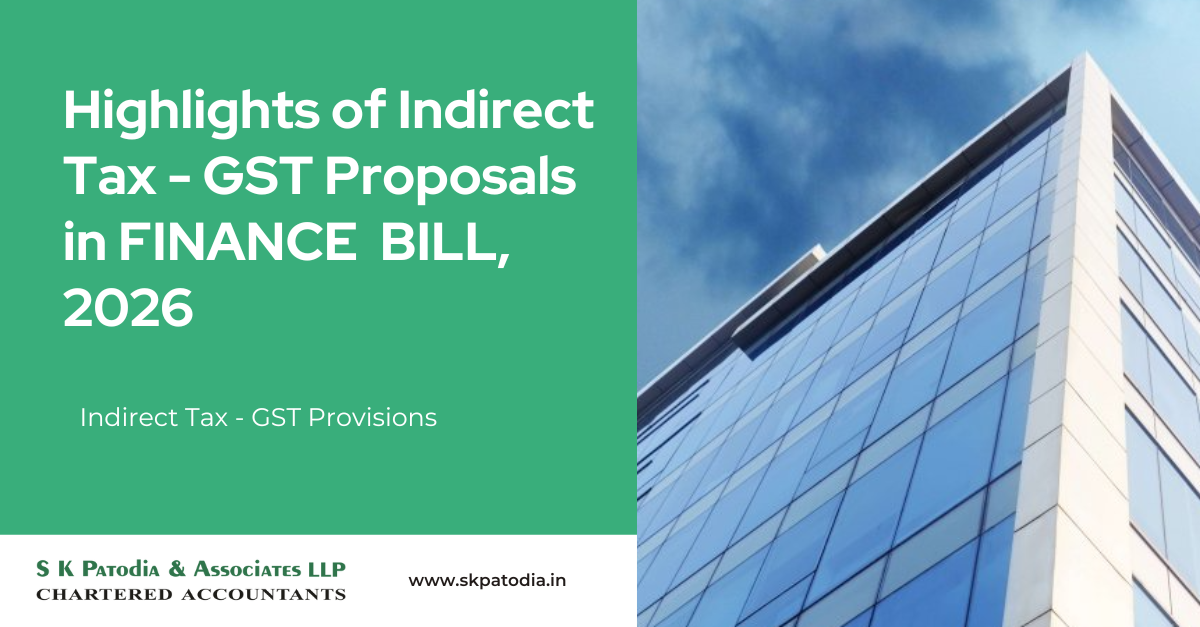Finance Minister Nirmala Sitharaman presented her record 7th consecutive Union Budget 2024-25 on July 23, 2024 of Modi 3.0 Government. Key highlights of indirect tax proposals are as under:
- Un-denatured Extra Neutral Alcohol or rectified spirit used for manufacture of alcoholic liquor, for human consumption to be kept out of the purview of GST.
- New Section 74A introduced with respect to assessments to be conducted from FY 2024-25 onwards.
- Extended the deadline for claiming ITC for invoices or debit notes u/s 16(4) of the CGST Act, to 30th Nov, 2021 for FY 2017-18, 2018-19, 2019-20 and 2020-21. This extension applies to return filed in FORM GSTR-3B.
- ITC allowed in the cases where returns from the date of registration cancellation to revocation are filled within 30 days of the revocation order.
- ITC is not allowed on taxes paid u/s 74 for demands up to FY 2023-24, considering it as block credit.
- Section 11A is being inserted to empower the government to regularise non-levy or short levy of central tax due to any general practice prevalent in trade.
- Section 13(3) is amended for the time of supply in case the invoice is issued by the recipient of supply to be the date of invoice.
- A new proviso in sub-section (2) of section 30 of the CGST Act is being inserted, adding conditions and restrictions for revocation of GST registration cancellation, which will be prescribed in the CGST Rules at a later date.
- Section 31(3)(f) is amended to provide a time limit to issue invoices by the recipient for RCM supplies. It will include suppliers registered solely for TDS under GST.
- GSTR-7 for GST TDS must be filed monthly regardless of transaction volume.
- GST refund of unutilised ITC or IGST will not be allowed for the zero-rated supply of goods subject to export duty.
- Transitional credit for the CENVAT credit for input services by an ISD is allowed retrospectively.
- A summoned person can authorise another person to appear on their behalf in compliance with GST summons issued by the GST officer.
- The maximum pre-deposit for filing appeals before the appellate authority is reduced from Rs.25 crores to Rs.20 crores. Similarly, under the IGST Act, Section 20 has been amended to reduce the pre-deposit amount from Rs.50 crore to Rs.40 crore.
- The government can notify the types of cases for hearing by the Principal Bench of the Appellate Tribunal by amending Section 109.
- In Section 112,
– The deadline for filing an appeal to the Appellate Tribunal by taxpayers will be the later of either 3 months from the date of order communication or a date notified by the government based on Council recommendations.
– The same change applies to commissioners/GST officers filing applications before the Appellate Tribunal.
– Applications may be filed within three months after the standard appeal period expires
– The pre-deposit requirement for appeals is reduced from 20% to 10% of the disputed amount
– The maximum amount required for pre-deposit is lowered from Rs.50 crore to Rs.20 crore
- Penalty under Section 122(1B) is amended to restrict this to cases involving the e-commerce operators subjected to TCS under GST retrospectively from 1st October 2023.
- Conditional waiver of interest and penalty for demand notices under Section 73 for all FY from 2017-18 to 2019-20 except for erroneous refunds and where interest/penalty is already paid for the said years.
- Section 171 dealing with anti – profiteering is being suitably amended to empower the government to notify the sunset date for accepting applications the said provisions and to refer to the Appellate Tribunal as the appropriate authority to deal with Anti-profiteering cases.
- Changes in Schedule III provided to declare Co-insurance premiums and re-insurance commission transactions between insurers as no supply as neither supply of goods nor supply of services.
- Section 146 states that no refund shall be made of the tax paid or the input tax credit reversed, which would not have been so paid, or not reversed had the said clause 114 been in force at all material times.
For our more detailed budget analysis report, please click.




